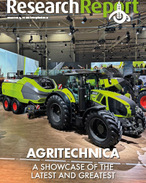This article is 6 years old. Images might not display.
Now available to landholders, Di-Bak Parkinsonia is a biological herbicide containing naturally-occurring fungal pathogens.
These are delivered in capsules injected directly into the trees, enabling targeted application and limiting adverse impacts on the surrounding environment.
The product, which has Australian Pesticides and Veterinary Medicines Authority approval, introduces pathogens that induce die-back disease, which stresses and kills the plant.
Dense thickets of Parkinsonia occupy vast areas of northern Australia, negatively impacting on pastoral industry production by limiting pasture growth, restricting stock access to pasture and water points and increasing mustering difficulty and cost.
More than a decade ago, producer observations indicated evidence of naturally occurring die-back in Parkinsonia, which raised the possibility of using native soil pathogens to help contain the weed.
Di-Bak Parkinsonia is now available after years of collaborative research and trials by the University of Queensland, BioHerbicides Australia, cattle producers, government departments and natural resource management groups.
Following initial producer observations and small plot trials, MLA supported larger producer trials.
MLA Program Manager Sustainable Feedbase Resources, Cameron Allan, said the product was a positive addition to existing methods of managing Parkinsonia.
"Di-Bak Parkinsonia provides another tool for producers to implement into their weed management programs and tackle their specific Parkinsonia problems," Allan said.
During its development, it was observed that Di-Bak works best in dense thickets, with the disease establishing and spreading in the thicket after inoculation of several plants.
Spot spraying isolated or large plants with chemicals to rapidly reduce seed production is another key management technique.
The MLA Program Manager said as with any weed control program, it's important that producers are clear about their objectives in taking action.
"For instance, they need to identify whether they want to keep clean country clean, or reduce existing larger weed infestations," Allan said.
Research indicates that the performance of Di-Bak Parkinsonia is influenced by local conditions, with treatment more effective in hotter environments and conditions.
"As with all biological control approaches, results are not instant and can take months before the disease takes hold and kills the plant," he said.
"As part of a well-considered, consistent weed management program, Di-Bak Parkinsonia will be a useful tool for landholders."
Di-Bak Parkinsonia is commercially available to producers through Bio-Herbicides Australia.
It was officially launched at the National Pest and Weed Symposium on the Gold Coast last week.























